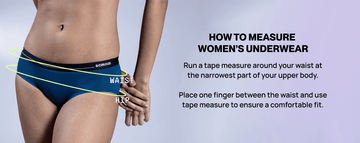As men traverse through different stages of life, their bodies and minds inevitably undergo a series of changes. These changes have a profound impact not only on their physical health but also on their psychological well-being. Men, especially those above thirty, must understand these shifts and navigate them effectively. This understanding can help redefine self-image, preserve a sense of self, and ultimately create a more positive ageing experience.
Physical Transformations: Beyond the Visible
The Andropausal Shift : Ageing in men is often associated with a period known as andropause, akin to menopause in women. A gradual decline in testosterone levels marks this phase. Studies suggest that men start losing testosterone at a rate of 1% per year after 30. Such hormonal changes can lead to reduced muscle mass, increased body fat, changes in sleep patterns, and decreased libido.
The Muscle Mass Dilemma : Muscle mass and strength reduction is another significant alteration that men undergo as they age. After age 30, men can expect to lose 3% to 5% of their muscle mass per decade. This transformation can impact strength, balance, and overall physical performance, subsequently increasing the risk of injuries.
Body Composition and Fat Distribution : Men also tend to gain more fat, particularly around the abdomen, with advancing age. This change in body composition can raise several health concerns, such as diabetes, heart disease, and high blood pressure.
Though part of a natural process, these physical changes can significantly influence men's health, impacting their quality of life.
Psychological Shifts: The Inner Dialogue

Just as the body evolves, so does the mind. The following are some of the psychological changes that men may experience as they age:
Mood Disorders and Cognitive Decline : Ageing can bring about mood alterations, resulting in increased anxiety and depression. Cognitive processes might also slow down, making it more difficult to remember things or process information. As per studies, about 6% of men will experience depression after they turn 65, and one in ten men over 65 will experience anxiety symptoms.
The Body Image Paradox : The physical transformations often impact how men perceive themselves, potentially negatively impacting body image and self-esteem. Men previously confident and comfortable in their skin might find it challenging to accept their ageing bodies.
Impact on Masculinity and Self-Image

The societal narrative often links masculinity with attributes like physical strength, sexual prowess, and endurance. However, age-related changes can challenge these notions, affecting men's self-image and masculinity.
The decline in testosterone levels can result in reduced sexual drive, while increased fat and reduced muscle mass might alter perceptions of physical attractiveness. Research reveals that nearly 30% of men express dissatisfaction with their bodies by the time they reach their 50s. This dissatisfaction often amplifies with age, with up to 50% of men over 60 expressing discontent with their physical appearance.
Empowering Men: Strategies to Navigate Ageing
Navigating these age-associated changes can be daunting for men, especially in a society where ageism and unrealistic body expectations prevail.
Below are a few strategies that can help manage the physical and psychological impacts of ageing:
Awareness and Acceptance : Recognising and accepting the changes with increasing age can alleviate anxiety and uncertainty. Understanding that these shifts are part of a natural process can foster a more positive attitude towards ageing.
Active Aging : An active lifestyle, including regular exercise and a balanced diet, can help manage the physical changes associated with ageing. Regular medical check-ups are also crucial for early detection and management of potential health risks.
Mental Health Support : Engaging in activities that promote mental health, such as mindfulness exercises, pursuing hobbies, and maintaining social connections, can improve psychological well-being. Seeking help from mental health professionals when needed is also essential.
Body Positivity : Promoting body positivity and challenging societal norms of masculinity can significantly improve self-image and confidence. Remember, your physical appearance does not define your worth.
Aging is a natural and universal process that shapes a man's journey, enhancing his wisdom and experiences rather than diminishing his worth or masculinity. By embracing these physical and psychological changes with confidence, men can transform aging into a fulfilling and empowering experience. Prioritizing self-care, self-compassion, and emotional well-being fosters a positive outlook, making the transition both enriching and meaningful.





















